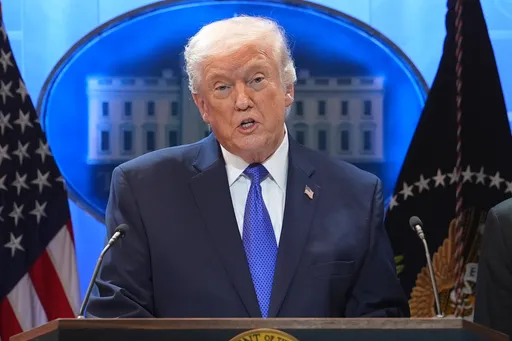The US’ partnership with Saudi Arabia is old and close, based on an understanding that Riyadh supplies oil and Washington provides security in return.
The two countries teamed up to fight communism during the Cold War and jointly oppose the Soviet occupation of Afghanistan. America fought the 1991 Gulf War in part to protect the kingdom from Iraqi leader Saddam Hussein. Cooperation continued into the 2000s, with Riyadh backing the US’ “war on terror” and receiving vast supplies of arms.
True, there have been tensions, such as the 1973 oil embargo, led by Riyadh to protest Western backing for Israel, and the 9/11 attacks, in which 15 of the 19 hijackers were Saudi nationals. But relations survived intact.
Until now, that is. The disappearance and alleged murder of Jamal Khashoggi, a renowned journalist and Washington Post contributor, at the Saudi consulate in Istanbul could place unprecedented strain on a relationship already showing signs of weakness.
Khashoggi, a Saudi national, had entered the consulate on October 2 to obtain paperwork for his wedding, but he never came out. According to media reports, Khashoggi was tortured and killed in the consulate by a hit squad of 15 Saudis acting on the orders of Crown Prince Mohammed Bin Sultan, known as “MBS.” Turkish authorities reportedly possess audio and video recordings of the incident. Riyadh has denied the allegations.
The apparent murder of a US resident and writer for one of America’s most prestigious newspapers sent shockwaves through Washington. President Trump, who has developed a close relationship with Saudi Arabia, responded cautiously at first. But leading senators have been more outspoken.
Bob Corker, chair of the Senate Foreign Relations Committee, reviewed intelligence on the case and said there was “no question” the Saudis killed Khashoggi. Lindsey Graham, another high-profile Republican senator, warned there would be “hell to pay” if Riyadh was found culpable. Democrat Chris Murphy tweeted that, if Khashoggi was murdered, it should “represent a fundamental break” in US-Saudi ties.
Congress has already taken action. Last week, all but one member of the Senate Foreign Relations Committee signed a letter triggering, for the first time ever, a provision of the Global Magnitsky Human Rights Accountability Act requiring the administration to investigate allegations of human rights violations against Khashoggi and consider imposing sanctions, specifically mentioning “the highest ranking officials in the Government of Saudi Arabia.”
Even if the US government declines to apply sanctions, Congress might act independently. Last year it passed a law sanctioning Russia, for instance, despite opposition from Trump. There is already serious talk of suspending arms sales to Riyadh.
In recent years, Congress has become increasingly hostile to the kingdom. As Bob Corker said, support in the Senate is “the lowest ever” and the Khashoggi affair threatens to throw it “off a cliff.”
Part of this animosity stems from allegations that Saudi Arabia promotes extremism, and that some minor Saudi officials might have facilitated the 9/11 attacks. In 2016 Congress passed a law permitting claims against Saudi Arabia to be heard in US court, thus allowing a lawsuit brought by relatives of 9/11 victims to proceed. Riyadh reacted furiously to the bill, and President Obama vetoed it. But, for the first and only time during Obama’s presidency, Congress overrode his veto.
There has also been growing congressional opposition to the Saudi military intervention in Yemen, which the US supports. More than 6,500 civilians have been killed in the war, according to the UN, and most of those as a result of Saudi-led actions. Congress almost blocked US arms sales to Riyadh in 2017, and deliveries have been delayed since then. The Senate almost voted in March to end US involvement in the conflict. Such efforts may now succeed. Moreover, the Saudi-led blockade of Gulf rival Qatar in 2017 for its alleged support of terrorism has backfired, with the US government eventually siding with Doha and even strengthening their security cooperation.
This is fast becoming the deepest ever crisis in US-Saudi relations; 9/11 might have involved Saudi citizens, but it was not planned by the government, unlike Khashoggi’s alleged murder, and Congress did not consider imposing sanctions.
The consequences of this episode have already been far-reaching. An array of top media outlets, including CNN, Bloomberg, and the New York Times, and some businessmen have withdrawn from a major investment conference in Riyadh, part of the Saudi government’s Vision 2030 project to lure foreign investment. The Saudi stock exchange has nosedived. Trump is now threatening Riyadh with “severe punishment.” The Saudis hit back, vowing to retaliate with even tougher measures.
As US-Saudi ties have weakened in recent years, the kingdom has started looking elsewhere for support. With Congress jeopardising arms sales, the Saudis have found an unlikely new partner in Russia, its former Cold War adversary.
King Salman visited Moscow in 2017, the first ever trip there by a reigning Saudi monarch, in which $3 billion worth of arms deals were signed. Saudi and Russia also agreed, in 2016, to limit oil production and boost prices. There has been Russian interest in bidding for the planned but delayed public offering of Saudi Aramco, and signs of nuclear cooperation. Riyadh also has decent relations with China, the main customer for its oil and, increasingly, a supplier of weapons.
US influence in the region is waning, while Russia’s and China’s has grown. A number of countries are therefore cultivating ties with Moscow and Beijing to recalibrate their foreign relations away from Washington. Turkey and Pakistan, long-standing US allies, have both strengthened their links with Russia.
Like Saudi Arabia, they have had US arms sales restricted by Congress. The Khashoggi affair may therefore deepen existing rifts between Saudi Arabia and the West, accelerating a split that was already underway. The journalist’s murder, if it is proven, could cause permanent damage to the US-Saudi relationship and dramatically reshape the geopolitical landscape.























